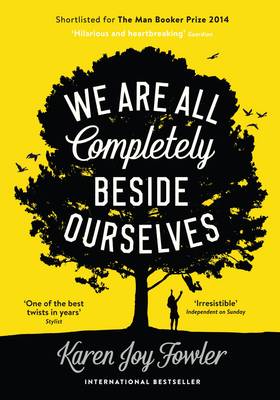Reviewed by brokentune on
I live under a rock. I do. Otherwise, I would have probably known what the big twist in this book was all about. But I didn't, and that was ok.
However, even not knowing that there even is a twist didn't help me enjoy the book more than I did, and here is why:
The beginning of the story was awesome - the MC, Rosemary Cooke, is inadvertently arrested when another woman goes mental on her ex-boyfriend in a cafeteria.
What a great start to a story!
Unfortunately, from there on the book lost momentum while Rosemary tells about her childhood and introduces us to her family, and how her and her family's lives have fallen apart after her sister and brother disappeared. There is also the "big reveal", after which the book continues in search for a conclusion.
Fowler takes up an interesting story full of thoughtful observations and quirky dialogue, but I could not help feeling that the issues Fowler tried to address where over-written and drawn out to an extent where I lost interest. What's more, even my usual enthusiasm for animal welfare issues and philosophy near enough extinguished over the question what the book was trying to do.
Did the interjections of literary and philosophical quotations try to aid the message of the book or were they meant to lend an air of validation to what would have otherwise been a perfectly good coming of age story or family saga?
I know this book has received a lot of praise but it just did not do much for me.
Reading updates
- Started reading
- 23 June, 2015: Finished reading
- 23 June, 2015: Reviewed
